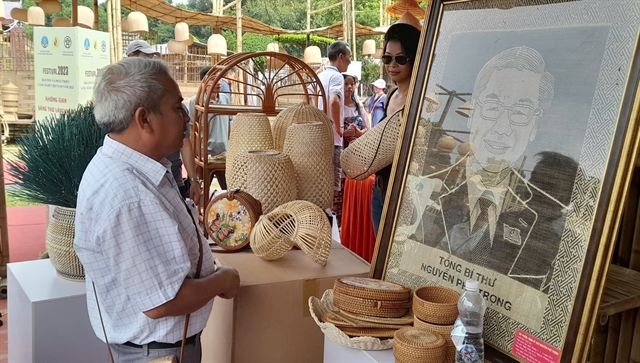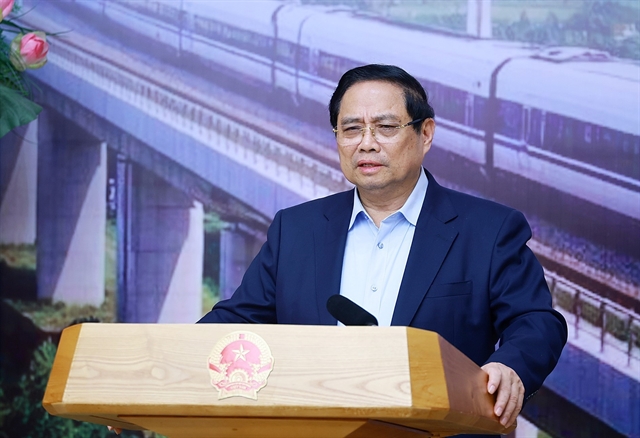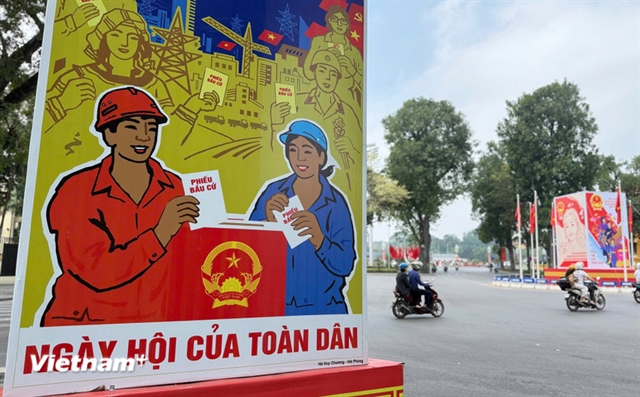 Economy
Economy

Christine Largarde, Managing Director of the International Monetary Fund (IMF) visits and talks to students of the National Economics University about Việt Nam's challenges and opportunities given the current status of global economic development.
 |
| "Viet Nam should also invest more in research and development (R&D) for technological innovation, where the country lags behind other nations" Christine said. — Photo dantri.com.vn |
HÀ NỘI (VNS) — Việt Nam should enact large macroeconomic reforms in order to lift growth and catch up with other economies, Christine Largarde, Managing Director of the International Monetary Fund (IMF), said yesterday at a meeting with students of the National Economics University.
The country should ensure its macroeconomics are stable by using flexible exchange rates to minimise the shocks created by global financial markets, and by using inflation as a decisive factor to develop monetary policies, she said.
Việt
The Government should also assist banks in resolving non-performing loans and bolster their balance sheets, which will support better credit growth for a more sustainable development of the economy in the medium term, she said.
In addition, the Government should also accelerate the restructuring of State-owned enterprises (SOEs) and boost labour productivity by reforming corporate governance, making divestments from non-core activities and allowing more foreign ownership in the SOEs, she said.
Christine also noted that local SOEs and private companies currently have very low productivity, only about one-fifth that of the foreign-invested firms, she said. She added that this explained why foreign direct investment (FDI) companies accounted for 70 per cent of the country’s total exports.
Việt
Christine also mentioned that Việt Nam needs to boost the quality of education, especially vocational training, to meet international requirements to reduce the high youth unemployment rate.
The IMF’s Managing Director suggested that Vietnamese students lift their creativity and innovation, while trying to build good knowledge and skills in economics related subjects such as math, engineering and finance.
“You will also have a chance to create sustainable ventures that are firmly grounded in mutual trust and strong ethical behavior,” she said, as unethical behavior sometimes appears in highly-competitive industries.
Additionally, Việt
Such methods are expected to help Việt
She said that the country has become one of the world’s most open economies in the past 30 years, which benefits from international trade and FDI to drive up growth and reduce poverty.
She said that there will be more opportunities for Việt
Those economic events will help Việt




